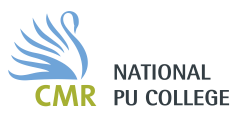Achieving readiness for any Board Exam requires giving due importance to mental well-being. A calm state of mind is crucial for successful planning and committed study sessions. A well-planned study pattern would lead to success. This proactive approach not only fosters a conducive environment for focused learning but also aids in gaining a comprehensive understanding of the subject matter.
Category 1: Structuring Your Study Schedule
Meticulous planning is vital for academic excellence. Craft a well-organized study schedule using this guide:
Assess Syllabus: Identify key topics for focused attention.
Time Allocation: Dedicate more time to challenging subjects.
Session Breakdown: Opt for short, focused study sessions.
Regular Breaks: Integrate short breaks for sustained focus.
Subject Variety: Diversify to maintain interest and prevent burnout.
Ensure peak productivity by identifying optimal study hours. Stay flexible, review regularly, and adapt for success in the Board Exam. This proactive approach is not just a methodology; it’s a mindset that ensures a triumphant journey toward success.
Category 2: Approaches to Learning and Diverse Study Methods
In reality, there exist approximately 15 distinct methods of studying, acknowledging the undeniable fact that each individual has their preferred approach to learning, with one of these methods likely resonating with them.
Methods :
| Technique | Description |
| Leitner System | Flashcard-based memory mastery with adaptive recall intervals |
| Retrieval Practice | Active quizzing for enhanced recall and reinforcement |
| Zeigarnik Effect | Harnessing curiosity by focusing on incomplete tasks |
| Pomodoro Technique | Time management for focused study with work-break intervals |
| The Learning Pyramid | Categories learning methods, emphasizing teaching and application |
| Feynman Technique | Breaking down complex concepts for effective teaching and learning |
| Pre-testing before Learning | Sparking curiosity and priming the brain before new material |
| Mind-Mapping | Visual representation of concepts to aid memory retention |
| Colour-coding your notes | Using colours to organize and enhance memory recall |
| Studying while playing music | Incorporating music for an immersive and focused study environment |
| Exercise before the study | Pre-study physical activity to boost alertness and focus |
| Dual Coding Theory | Merging visual and auditory elements for multisensory learning |
| Learning best when you rest | Incorporating short breaks for optimal information absorption |
| The 9-8-7 Rule | Time allocation strategy prioritizing high, medium, and low-priority subjects |
| Surroundings for Study | Creating a focused study environment with minimal distractions |

